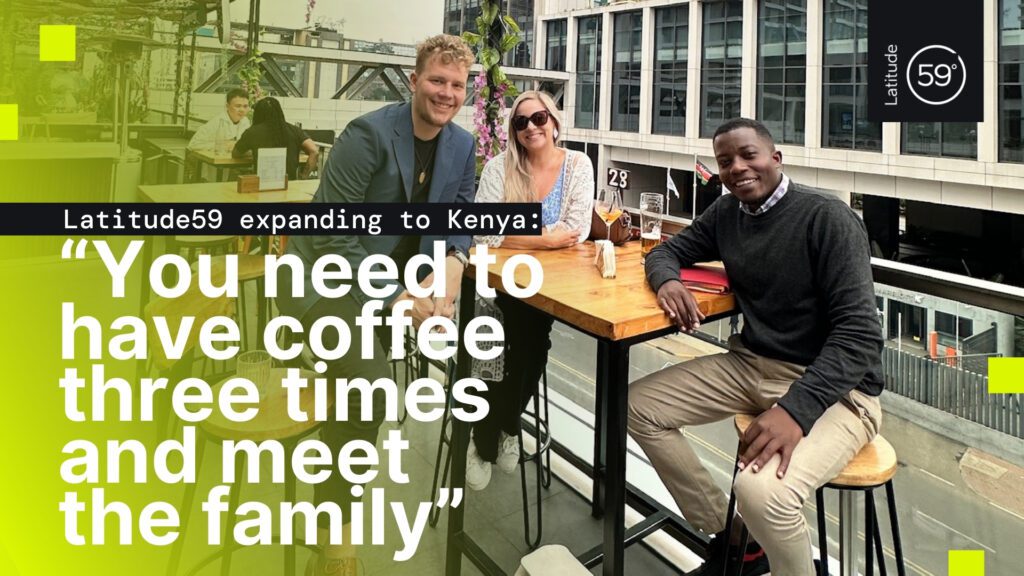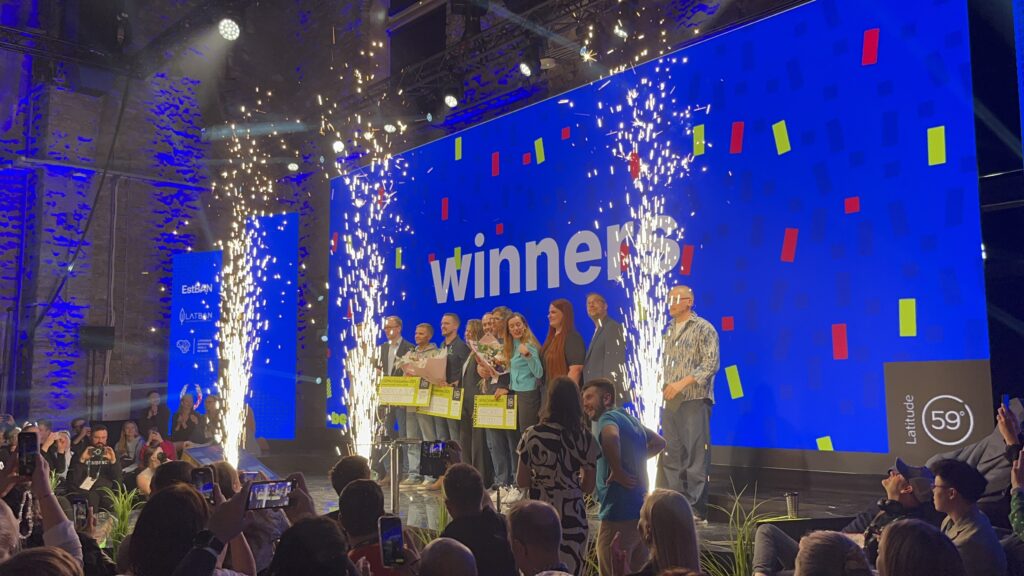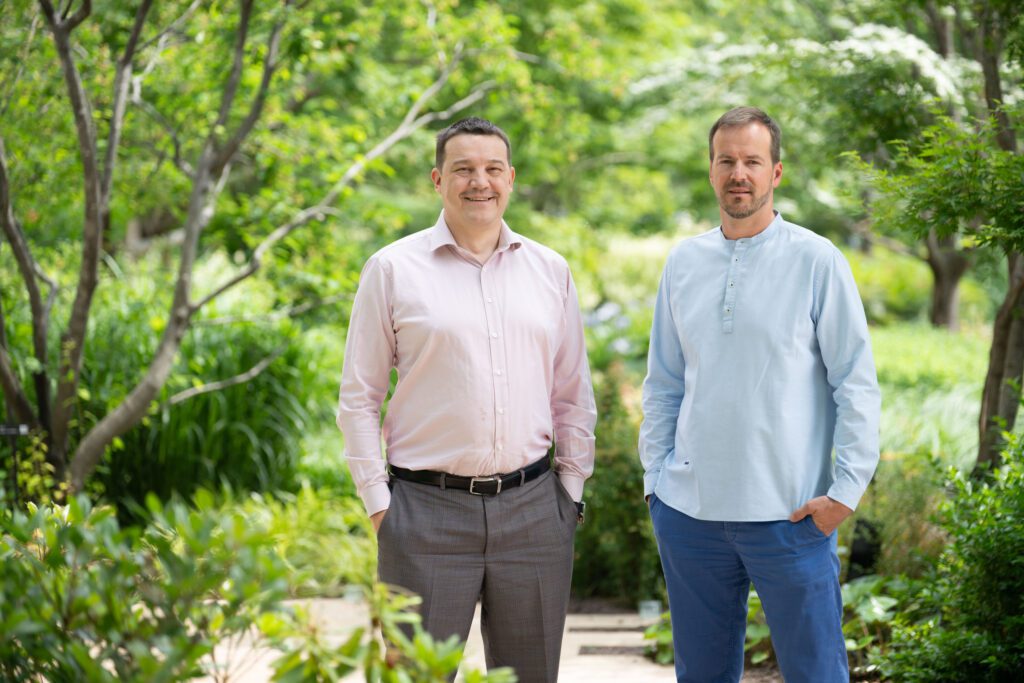Expanding to Kenya: to build partnerships, you need to have coffee three times and meet the family – a case study with Latitude59
Last year, Latitude59 made history by expanding to Nairobi, Kenya for their very first satellite event. In autumn 2024, the team of Latitude59 is about to head back to Africa – the date is set and over 2,000 participants are expected to attend Latitude59 Kenya Edition 2024.
In anticipation of the event, Latitude59’s CEO Liisi Org, Latitude59 Kenya Edition’s Project Manager Dolores Daniel, and Estonian Ambassador to Kenya Daniel Erik Schaer met with Linda-Liis Laikoja from DigiPRO for an interview. The original article was published on August 29, 2024 – head here to read the whole interview with the organizing team.
Latitude59’s goal is simple: to expand into the African market and connect the local community, investors, and startups with Europe through its events and network. But how to break through at a market that – at first glance – doesn’t seem to have much in common with Estonia?
According to Latitude59’s CEO Liisi Org, the expansion has been a huge experience – in the best possible meaning of the phrase. Similarly, Dolores Daniel, Project Manager for Latitude59 Kenya Edition, says that planning for the return has been exciting and positive so far.
“Last year was our springboard – we approached the market though trial and error, and with lots of passion. Although the place and the people were unfamiliar to us, we were actually very well received,” Daniel said. “The community’s warm welcome is one of the reasons why we are doing it again. Latitude59 fills an important niche there. We see a much bigger potential for Estonia in Kenya,” added Org.
Being present is important
Last year, the team arrived in October to organize the event in December, but this year, they flew to Kenya already in August. Even during this interview, Org was in Kenya, warming up connections and building relationships.
Org said that maintaining relationships is crucial in this market. It is not uncommon to have coffee with people three times, meet their families, and spend time together before talking business. “I think it was very different for our partnership manager, Kaspar, in the beginning – a couple of emails are not enough,” admitted Org.
This interview was originally published on August 29, 2024 at the online news outlet DigiPRO and written by Linda-Liis Laikoja. Head here to read the whole article.
Expanding to Kenya: to build partnerships, you need to have coffee three times and meet the family – a case study with Latitude59
Last year, Latitude59 made history by expanding to Nairobi, Kenya for their very first satellite event. In autumn 2024, the team of Latitude59 is about to head back to Africa – the date is set and over 2,000 participants are expected to attend Latitude59 Kenya Edition 2024.
In anticipation of the event, Latitude59’s CEO Liisi Org, Latitude59 Kenya Edition’s Project Manager Dolores Daniel, and Estonian Ambassador to Kenya Daniel Erik Schaer met with Linda-Liis Laikoja from DigiPRO for an interview. The original article was published on August 29, 2024 – head here to read it in Estonian.
Latitude59’s goal is simple: to expand into the African market and connect the local community, investors, and startups with Europe through its events and network. But how to break through at a market that – at first glance – doesn’t seem to have much in common with Estonia?
According to Latitude59’s CEO Liisi Org, the expansion has been a huge experience – in the best possible meaning of the phrase. Similarly, Dolores Daniel, Project Manager for Latitude59 Kenya Edition, says that planning for the return has been exciting and positive so far.
“Last year was our springboard – we approached the market though trial and error, and with lots of passion. Although the place and the people were unfamiliar to us, we were actually very well received,” Daniel said. “The community’s warm welcome is one of the reasons why we are doing it again. Latitude59 fills an important niche there. We see a much bigger potential for Estonia in Kenya,” added Org.
Being present is important
Last year, the team arrived in October to organize the event in December, but this year, they flew to Kenya already in August. Even during this interview, Org was in Kenya, warming up connections and building relationships.
Org said that maintaining relationships is crucial in this market. It is not uncommon to have coffee with people three times, meet their families, and spend time together before talking business. “I think it was very different for our partnership manager, Kaspar, in the beginning – a couple of emails are not enough,” admitted Org.
“Today, we see that people don’t really want to be in calls. They want to meet, and even then, they first talk about everything else,” Org added. The Estonian ambassador confirmed this, noting that while customs vary from country to country in Africa, this approach is felt everywhere.
This is certainly not the only difference between the two markets. Time perception is also different in Africa. For example, Org mentioned that being late to meetings is not a problem. She recalled a meeting scheduled to start at one o’clock, but because everyone was late, it started at two. You don’t usually see this in Estonia, where people stick to schedules.
Time perception also differs in that the workday begins when the sun rises. This means you shouldn’t be surprised if you’re invited to a meeting at seven in the morning. Unlike Estonians, people there also know how to value their free time: when the clock hits five, pens drop, and computers shut down.
Schaer cautioned that one shouldn’t take things too casually either in Africa, as it can backfire. “This happened to a colleague in Rwanda— he went to a meeting in a T-shirt when everyone else was in suits. A remark was made that it’s not polite. You also shouldn’t forget that different religious groups are represented in Africa,” he explained.
Small team, big dreams
A 2000-person event on another continet is a big bite. Yet the core team behind the satellite consists of just four people, including Org and Daniel. A significant contribution is made by volunteers, who are gladly welcomed into the extended team.
Equally important are the partners, the Estonian state, and the Ministry of Foreign Affairs and EstDEV, whose support has made such an undertaking possible. About half of Latitude59’s budget comes from support received from the Estonian government, with the rest coming from partners and a small portion from ticket sales. Estonian companies such as Bolt and Yaga are also supporting the event, with more partners to be announced in the upcoming weeks and months.
Overall, Latitude59 Kenya Edition focuses on four topics: green technology and sustainable solutions, payment systems, funding models, and supporting and promoting Kenyan founders and innovation. The latter is considered particularly important. “Community’s support is very important to us – we are working on gathering at least $10,000 in prize money, from either angels or VC funds, for startups that have applyed to the L59 Pitch Competition in Kenya,” Org said.
Org noted that Kenya is a warm and open country. “I have been to many ecosystems, and the potential and synergy there are truly special – a million people graduate from high school every year, and there are many young people in Kenya with a desire to do something, and this young generation has enormous potential,” Org pointed out, adding that Latitude59 wants to bring Estonians and Kenyans together and bring the two countries closer.
Marketing plays a big role
It’s no secret that smartphones play a major role in this market. According to the organizers, people are more likely to have a smartphone than a computer. Locals prefer this device for everything, so marketing must be designed accordingly. The main channels are LinkedIn, X, and Instagram.
The team has been delighted to give lots of interviews, with even the ambassador contributing. “Last year, Daniel and I sat in a room and gave seven interviews to the local press. We hope the press, from here and far, will join us again this year. In fact, the local Wall Street is among our official partners,” Org said.
Latitude59’s team promotes the cause at local conferences. There are many tech events in Africa, but none quite like Latitude59. Conferences do take place, but they are more about showcasing solutions rather than connecting and supporting the community. “For example, last year, we received about 300 applications for the Latitude59 Pitch Competition in Kenya, and the level was surprisingly high – many already had customers and initial investments,” said Org.
Volunteers are also recruited into the extended team to help build and support the community. The demand to join the ranks of volunteers is high, but not all pass the screening process. Volunteers are evaluated based on their motives and motivation for participating. Overall, they find African people much more open, especially in terms of community. “I hope that Estonian startups and investors will join us and see this,” added Daniel.
No similar statistics for Estonia
Although Kenya does not have an ecosystem similar to Estonia’s, there are plenty of tech companies in the market. According to Schaer, Kenya, along with South Africa, can be considered one of Africa’s major tech hubs, where considerable development is taking place, although no official statistics are available.
Today, banking-related services are particularly popular in Africa, offered by European and Estonian companies. This is significant because banking tends to lag behind in Africa, and there is a great demand for startup services. This makes it a good growth area for many startups.
“The second major area is green technology, where Estonian startups are also making their mark. Kenya sees itself as a leader in the green technology sector within this ecosystem. There is a lot of interest from various startups on this topic,” Schaer explained, citing Yaga as an example.
It’s not just small startups looking toward the African market. Major giants like Microsoft, Google, and Amazon have also set up offices in Nairobi, inspiring locals to start their own companies.
There are also local angel investors and venture capital funds in Africa, albeit not as prominently as in Europe. Kenya’s biggest and most popular VC funds and accelerators, such as Novastar and Partech, are actually based in India. However, there is room for European funds and angels in Africa. There is also an angel project in Nairobi, where 150 angel investors meet and make various deals to support local companies.
One of Latitude59’s major partners for the upcoming Kenya Edition is Tech Safari – an online tech community and media outlet, regularly publishing the success stories of African founders and community achievements. There is something new and exciting happening on the continent’s tech scene every day. “The more we talk about these topics, the more we draw the attention of European funds to Africa. It’s crucial that they have a point of entry to discover the market. We can bring that context to them,” Org thought.
Media exaggerates scandals
Recently, a scandal erupted involving the Estonian startup Planet42, operating in South Africa, which faced financial difficulties after customers began terminating lease agreements prematurely. This situation escalated with Planet42’s recent restructuring application.
Since this also involves the African market, it raises the question of whether this market is too unfamiliar and complex for Estonian companies. The ambassador believes that no conclusions can be drawn from a single case and that this situation is largely exaggerated. “I’m very sorry that so much media attention was given to it because it was a startup investment like any other,” he said.
“They talked about 20% interest on loans— when you hear such a percentage, it makes you think of high risks,” the ambassador added, noting that this case does not describe Africa as a market or its people in any way. “In reality, it’s a service in demand in the South African market. The situation was negatively affected by rising interest rates and overall price increases,” emphasized Schaer.
He also hasn’t noticed that Estonian companies have become more hesitant toward the African market after the incident. On the contrary, companies have sought to meet with him to learn about life there and how to expand. Good examples are Nortal, Cybernetica, and Digital Nation, which have been operating in the market for a long time.
“We have Estonian Ambassadors’ Days in Tallinn, and we also have an entrepreneurship day— I was scheduled to meet with over 15 companies wanting to talk about Africa. So I feel that this case doesn’t directly affect them. Surely, there are some who have thought about this market but read the headlines and start doubting,” admitted the ambassador.
At the same time, he added that you can’t expand into the African market on a whim. You must have a working product and a customer base. If not, don’t be surprised if the outcome isn’t positive.
This interview was originally published on August 29, 2024 at the online news outlet DigiPRO and written by Linda-Liis Laikoja. Head here to read the story in Estonian.
Tickets for Latitude59 Kenya Editon 2024 are available here. For official enquiries and proposals, feel free to reach out to the Latitud59 team at kenya@latitude59.ee



